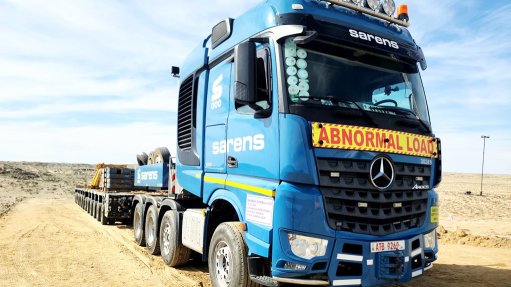In dictators’ sights
Voting in Uganda has come and gone, and Yoweri Museveni – the 76-year-old former rebel who shot his way to power in 1986 – remains ensconced in State House, amid opposition accusations that his victory came courtesy of massive rigging.
Allegations of electoral fraud in the East African country are not a new thing, with opponents of the ageing strongman having cried foul in nearly all previous elections. A new phenomenon this year, however, was the closing down of the Internet in the lead-up to election day in apparent retaliation for the blocking by Facebook of suspected fake accounts linked to the ruling party, which Facebook claimed were being used to manipulate public debate in favour of Museveni and his ruling National Resistance Movement party.
But Uganda is only the latest in a succession of African countries that have, at some point, restricted citizens’ access to the Internet and social media applications like WhatsApp, Facebook and Twitter, ostensibly for security reasons.
In Uganda’s East Africa neck of the woods, Tanzania took a similar course of action in October, during its own elections, which, like Uganda’s, were marred by heavy-handedness against the opposition and allegations of cheating by the ruling party.
Earlier in the year – in June – Ethiopia, of all countries, shut down the Internet for almost a month after unrest had broken out following the killing of a prominent singer and activist. Many were taken aback by this move because that country is led by Abiy Ahmed, who was named a Nobel Peace Prize laureate in 2019, only months after assuming office. Given his record since last year – witness the confrontation in Tigray – it’s difficult to escape the conclusion that the award was premature and has surely left the Nobel Prize Committee with lots of egg on the face.
Other African countries that also restricted Internet and social media access during 2020 include Zimbabwe, Togo, Burundi, Chad, Mali and Guinea. This took place during protests or at election time.
According to independent monitoring group Access Now, 25 instances of partial or total Internet blackouts were reported across Africa during 2019, up from 20 in 2018 and 12 in 2017. Worryingly, of the 14 countries that implemented shutdowns in 2019, seven – Benin, Gabon, Eritrea, Liberia, Malawi, Mauritania and Zimbabwe – had done so in the previous two years.
While Internet shutdowns are becoming an increasing global phenomenon, Access Now says it has observed that shutdowns in Africa tend to affect entire countries, as opposed to specific regions or groups of people. The organisation notes that 21 of the 25 blockades imposed by African countries in 2019 affected either entire countries or large chunks of countries, with Sudan and Ethiopia being the only offending countries that imposed targeted shutdowns.
In a media statement released soon after the blackout in Uganda this month, Access Now explained why governments blocking citizens’ access to social media, and the Internet in general, is a worrying development: “Research has shown that Internet shutdowns and violence go hand in hand. Shutting down the Internet during elections limits citizens’ participation in the electoral process. By disrupting the free flow of information, shutdowns only serve to heighten existing tensions in society and negatively affect reporting capacity with regard to human rights violations.
“In addition, without access to communication tools, journalists, media workers and human rights defenders are unable to monitor and report on the election process. Internet shutdowns also affect people’s ability to access key information at a crucial moment in a democracy, damaging their capacity to make informed choices. The spread of misinformation may grow, as there are fewer reliable channels for fact-checking during a shutdown.”
The dictators who govern many of our countries clearly have their sights on the Internet. They must be stopped.
Article Enquiry
Email Article
Save Article
Feedback
To advertise email advertising@creamermedia.co.za or click here
Announcements
What's On
Subscribe to improve your user experience...
Option 1 (equivalent of R125 a month):
Receive a weekly copy of Creamer Media's Engineering News & Mining Weekly magazine
(print copy for those in South Africa and e-magazine for those outside of South Africa)
Receive daily email newsletters
Access to full search results
Access archive of magazine back copies
Access to Projects in Progress
Access to ONE Research Report of your choice in PDF format
Option 2 (equivalent of R375 a month):
All benefits from Option 1
PLUS
Access to Creamer Media's Research Channel Africa for ALL Research Reports, in PDF format, on various industrial and mining sectors
including Electricity; Water; Energy Transition; Hydrogen; Roads, Rail and Ports; Coal; Gold; Platinum; Battery Metals; etc.
Already a subscriber?
Forgotten your password?
Receive weekly copy of Creamer Media's Engineering News & Mining Weekly magazine (print copy for those in South Africa and e-magazine for those outside of South Africa)
➕
Recieve daily email newsletters
➕
Access to full search results
➕
Access archive of magazine back copies
➕
Access to Projects in Progress
➕
Access to ONE Research Report of your choice in PDF format
RESEARCH CHANNEL AFRICA
R4500 (equivalent of R375 a month)
SUBSCRIBEAll benefits from Option 1
➕
Access to Creamer Media's Research Channel Africa for ALL Research Reports on various industrial and mining sectors, in PDF format, including on:
Electricity
➕
Water
➕
Energy Transition
➕
Hydrogen
➕
Roads, Rail and Ports
➕
Coal
➕
Gold
➕
Platinum
➕
Battery Metals
➕
etc.
Receive all benefits from Option 1 or Option 2 delivered to numerous people at your company
➕
Multiple User names and Passwords for simultaneous log-ins
➕
Intranet integration access to all in your organisation

















